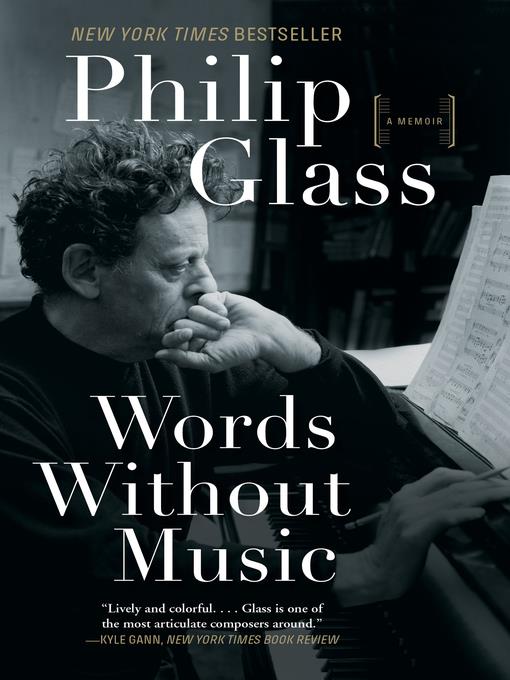
Words Without Music
A Memoir
کتاب های مرتبط
- اطلاعات
- نقد و بررسی
- دیدگاه کاربران
نقد و بررسی

March 9, 2015
In this episodic narrative of intellectual and artistic development, famed American composer Glass describes his involvement in the avant-garde music and art scenes in New York in the 1950s through the 1980s, as well as learning harmony and counterpoint in Paris from the brilliant composer and conductor Nadia Boulanger in the 1960s. He recounts touring the Indian subcontinent in search of a guru and eventually winning fame for repetitive compositions like Einstein on the Beach and Koyaanisqatsi, which delighted some listeners and enraged others. (When an annoyed audience member came up and started banging on the piano keys, Glass recalls, “I belted him across the jaw and he staggered and fell off the stage.”) At its core, Glass’s story is about work—he worked as a mover, a plumber, and a taxi driver to keep his family fed during his decades of obscurity, and since then he has immersed himself in the craft of composing. Glass is raptly alive to the aesthetic epiphanies, philosophy, spirituality, and magnetic personalities he has encountered, yet his prose is conversational and free of pretense. The result is a lively, absorbing read that makes Glass’s rarefied cultural sphere wonderfully accessible.

April 1, 2015
Reading composer Glass's (Einstein on the Beach; Satyagraha) memoir is like listening to one of his earlier compositions, which would alight upon a particular theme, develop it for a time, and then repeat. Though the book unrolls in roughly chronological order, beginning with Glass's childhood in Baltimore in the 1940s and ending with the Cocteau trilogy, individual chapters deal with subjects such as studying with French composer/conductor Nadia Boulanger, journeying to India and Tibet, and the composition of operas, developing them forward in time before leaping back to take up the main thread of the narrative. Though the result is occasionally jarring, it does make for some intriguing meditations on several of Glass's major creative influences, including jazz music and experimental theater. His prose will win no points for style, particularly when he touches on more personal topics such as the effect of the AIDS crisis on the artistic community of which he is an inextricable part. Yet his insights into his own creativity and the influences of theater, visual art, travel, and spirituality on it, are fascinating. VERDICT A satisfying reflection by one of the late 20th-century's preeminent American composers that should please fans. [See Prepub Alert, 10/5/14.]--Genevieve Williams, Pacific Lutheran Univ. Lib., Tacoma
Copyright 2015 Library Journal, LLC Used with permission.

























دیدگاه کاربران